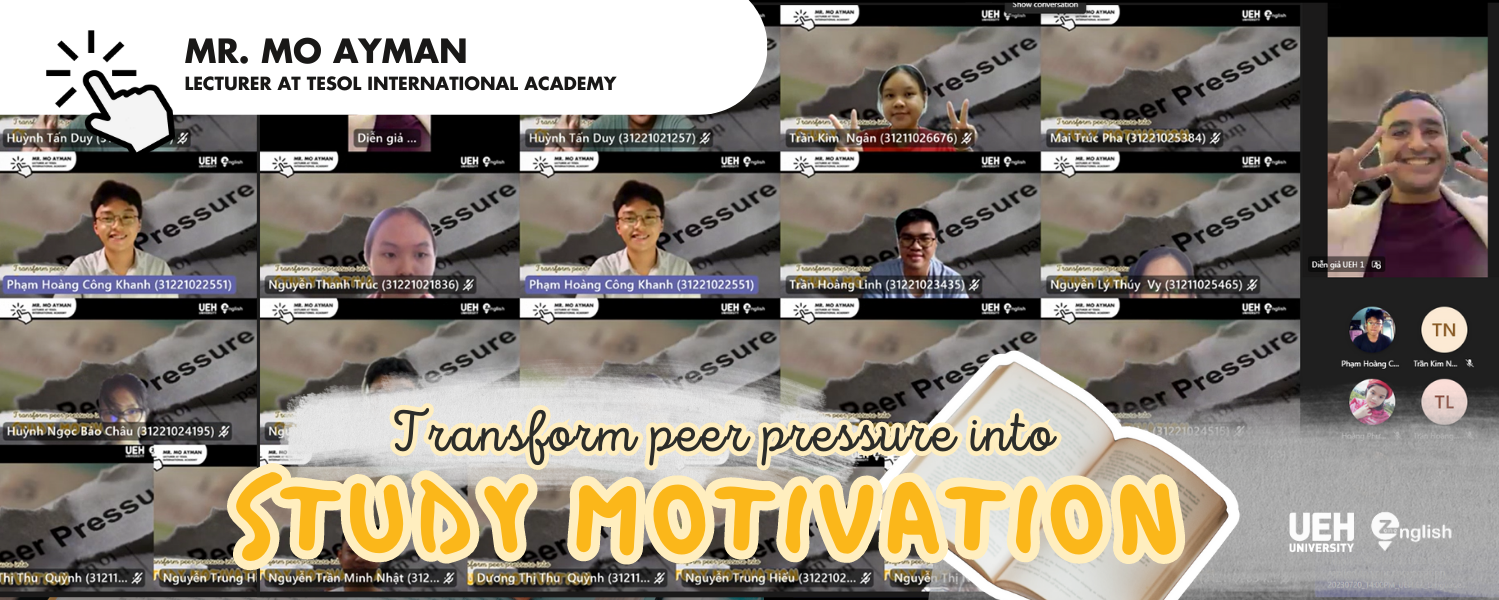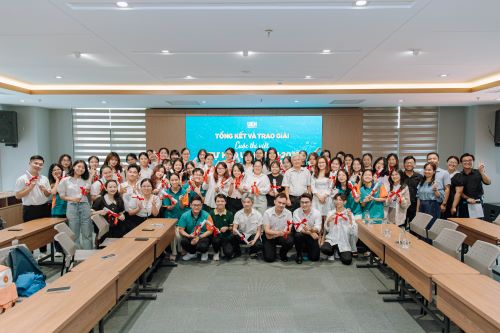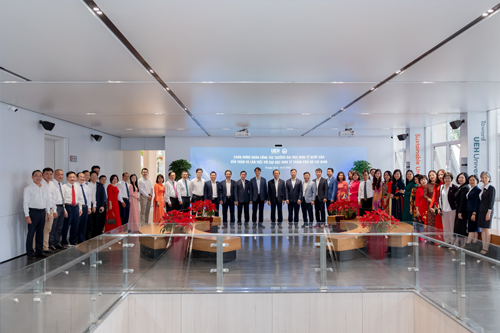
How Peer Pressure Boosts Study Motivation
Peer pressure has become a common phenomenon and has both on students' learning outcomes. Think for a moment—even though we can still benefit from what our peers have accomplished in the classroom, do you ever feel self-conscious when you see their remarkable accomplishments? But guess what? We can still actively use this pressure to our advantage as a powerful learning motivator.
Young people today frequently experience social pressure in a variety of areas, such as the choice of clothing style, accessories, and entertainment. Regarding the academic environment at universities, the majority of students find it challenging to manage peer pressure while maintaining high academic standards. They gradually become overwhelmed by their parents' expectations, their desire to fit in, and the influence of their friends, and they start to follow the crowd without understanding their true purpose.
That is why at the Language Workshop with the topic “Transform peer pressure into study motivation” organized by UEH English Zone and the School of Foreign Languages on July 20, 2023, learners will be guided on how to learn from Peer pressure with participation of Mr. Mo Ayman, lecturer at TESOL International Academy.
Mr. Mo Ayman shared many valuable experiences with learners on the UEH English Zone's Microsoft Teams platform, allowing attendees to have a more serious and complete view of peer pressure. According to the speaker, while peer pressure can be a powerful force, it is not a source of negative energy. Learners can fully harness the power of peer pressure and use it to motivate themselves to achieve their learning objectives by following the tips provided.
He specifically begins by discussing the positive and negative effects of peer pressure, emphasizing the importance of being aware of both. Positive peer pressure can motivate students to work harder and set higher goals. Negative peer pressure, on the other hand, can lead to distraction and lack of focus in school.

Breaking up your learning into manageable tasks and placing more emphasis on steps than goals, as the speaker stressed, are two ways to transform peer pressure into constructive motivation. This may make the task seem easier to complete and more doable. For instance, if you have a big test coming up, you can break it down into smaller tasks like reviewing your notes, performing practice exercises, and making a study schedule. Mr. Ayman also discussed the significance of developing a study routine, such as setting aside some time each day or each week. It is simpler to maintain motivation and focus when you make learning a habit.
The other thing Master Ayman emphasizes is that you are not doing this learning alone. There are many people willing to assist you, including your friends, family, teachers, and classmates. When you need help, do not be afraid to ask for it. Occasionally, taking breaks is more crucial than continuing to study because it will keep you motivated and prevent burnout. Moving around or taking a short break can help you feel refreshed and ready to concentrate when you return to your studies.
Lastly, Mr. Ayman advises students to acknowledge their own efforts by rewarding themselves. This will help you stay motivated and on track. Rewarding yourself for accomplishments is akin to telling yourself you are doing a great job. He makes the point that while comparing yourself to other people can be a strong motivator, it is important to compare yourself to your previous self and not to other people.


The workshop went well and attracted a lot of interest from UEH students. Nearly two hours of questions and answers about dealing with worries brought on by peer pressure were covered during the discussion. In the online format, attendees can increase their connections and expand their opportunities to learn and improve their English.
You can view a recording of the talk

Language Workshop is a monthly event held as part of UEH English Zone activities with a variety of useful topics to aid students and staff in enhancing their language proficiency and ability to communicate in a global setting. If you are interested in the program or other English-language exchange and sharing activities, join the conversation and follow the fan page to stay up to date on program news.
News, photos: Department of Student Affairs (DSA)

![[Podcast] Social policy response towards the COVID-19 pandemic in some countries (Part 2): Lessons for Vietnam](/images/upload/thumbnail/ueh-thumbnail-031128-122823.png)



